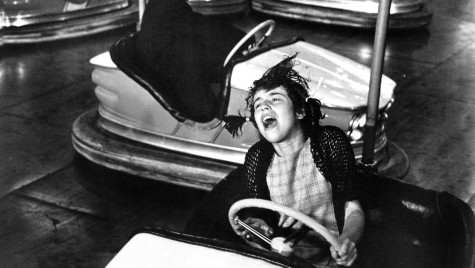 A day in the life of an abused young girl, presented by director Robert Bresson as the epitome of unjust human suffering.
A day in the life of an abused young girl, presented by director Robert Bresson as the epitome of unjust human suffering.
In the history of film, a handful of directors have attained, in a body of work spanning their careers, a level of artistry that transcends conventional genres, equaling in some degree the status of classic literature. Among those I’d include Carl Dreyer, Jean Renoir, and, perhaps the most unusual example, Robert Bresson, whose cinema of spirituality can seem daunting to a newcomer, much as a very steep mountain may overwhelm a beginning climber. But after experiencing the peaks, the discerning viewer will learn to appreciate the work as it deserves.
In Bresson’s 1967 film Mouchette, the title character, a fourteen-year-old girl in rural France, is shunned by the other children at school. She spends much of her time caring for her dying, bedridden mother, and is mistreated by her drunken lout of a father. When a half-witted poacher, who thinks that he has killed the local gamekeeper, encounters Mouchette, he tries to use her to establish an alibi.
In this film Bresson distilled one of his great themes down to its essence: the crushing of a human spirit through the force of a social order based on domination and material necessity. Mouchette is strong-willed, ignorant, stubborn, but always striving to love and be loved. She is overmatched by the tremendous forces against her, but to call the film pessimistic is to ignore the essentially tragic nature of Bresson’s spirituality. He doesn’t see the fallen world as a fact to be serenely accepted, but as something painfully inferior to the essential nature of human beings, something to be transcended but never excused or explained away. By stripping away everything extraneous, he lets us see real purity (not the idealized kind) in the midst of this poor girl’s suffering.
Bresson’s use of non-professional actors, and his avoidance of drama or psychology, has sometimes given the characters in his films a flat or low affect. But not here. Nadine Nortier, in her first and only performance, is a completely convincing, earthy presence in the title role. A scene in which she enjoys a “bumper car” amusement park ride is one of the most intensely moving sequences in all of Bresson’s work. The work of the other actors is also exemplary.
The entire story takes place in one day, just as the film compresses the director’s ideas about the crushing weight of “earthly” forces on the soul into the simplest of forms. To say that it’s Bresson’s most accessible work is not to minimize its power. This is a devastating film. From this stark vision we can only go upward.

A film of psychological tension and bitter humor, Joseph Losey’s The Servant portrays a butler (Dirk Bogarde) gradually turning the tables on his callow...

The story of a young girl who is accused of being a witch presents a drily satiric take on the oppression of women in...

A drama about the evolution of a motorcycle group in the ’60s, from club to gang. Jeff Nichols’ films are known for their gritty...